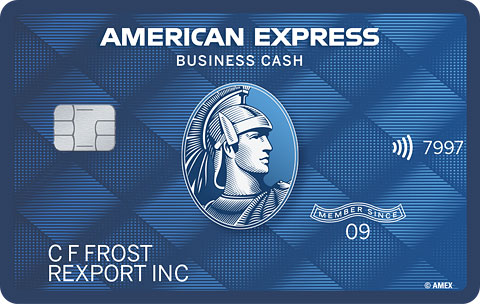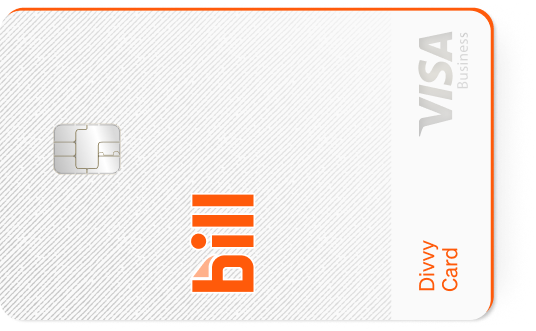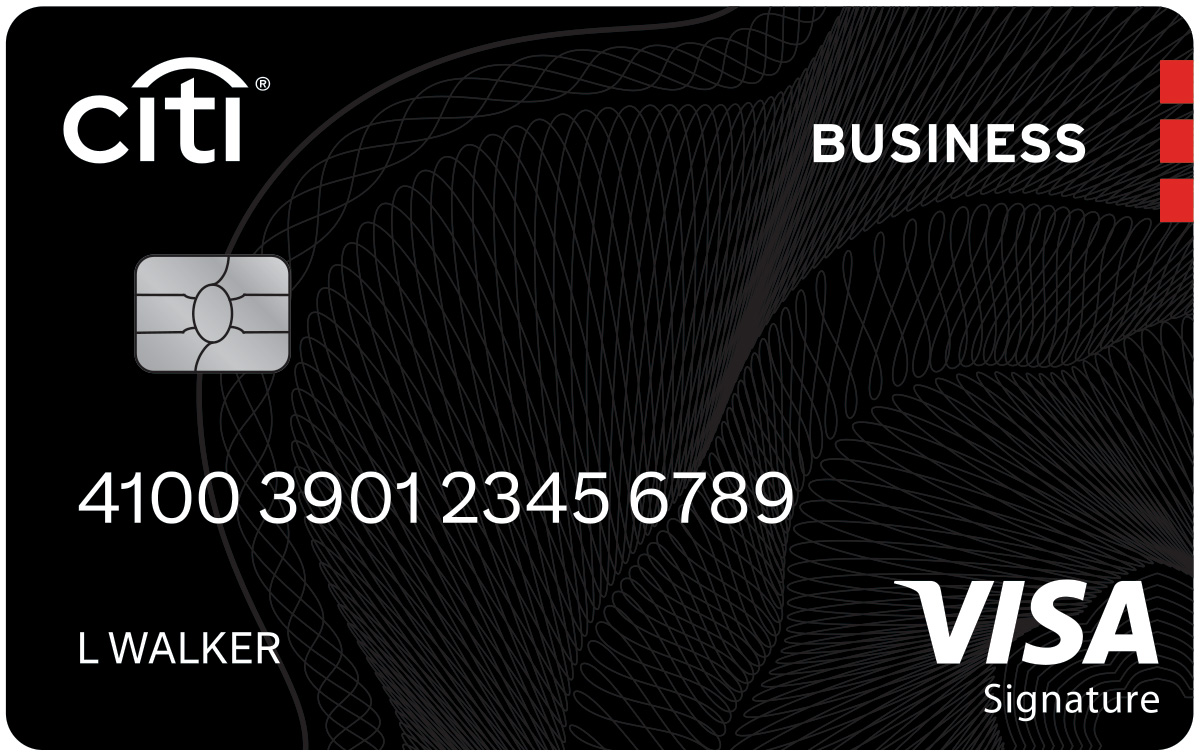Compare business credit cards to build business credit

Gerri Detweiler
Education Consultant, Nav

Robin Saks Frankel
Senior Content Editor

Summary
- Business credit cards may help you build business credit if the issuer reports to commercial credit bureaus like Equifax, Experian, or Dun & Bradstreet (D&B).
- Not all issuers report to all business credit bureaus, and some report through the Small Business Financial Exchange (SBFE).
- Be sure to pay on time every month to help build a positive payment history that can strengthen your business credit profile.
- Compare business credit cards that report through Nav.
Editorial note: Our top priority is to give you the best financial information for your business. Nav may receive compensation from our partners, but that doesn’t affect our editors’ opinions or recommendations. Our partners cannot pay for favorable reviews. All content is accurate to the best of our knowledge when posted.
Find the Right Credit Card for your Business
Get personalized business credit card options and access to your business credit report when you create your Nav account. Checking won’t hurt your credit scores.
A business credit card can give you more than rewards and flexible spending power. Some cards may even help you build business credit, which may open the door to better financing terms down the road.
The key word here is "may".
Business credit cards are often different from personal credit cards where almost every issuer reports payment history to all three consumer credit bureaus.
Not so with business credit cards. Some submit account information directly to one or more business credit bureaus, such as Dun & Bradstreet (D&B), Equifax or Experian. Some report via an intermediary, the SBFE, which we will explain in a moment.
Credit scoring models are complex. Information here is provided for educational purposes only. Your results may vary.
Compare top business credit cards to help build business credit
All major small business credit card issuers report information to at least one of the business credit bureaus, either directly or via the SBFE (more details on that in a moment). We’ll describe reporting policies in more detail in the chart below.
Here are five cards to consider:
One of the highest cash back rates available for small business cards.
Pros
- Attractive intro financing offer
- High rates of cash back for business spending
- No annual fee.
Cons
- No rewards bonus for initial spending
- Foreign transaction fees.
Intro APR
Purchase APR
Annual Fee
Welcome Offer
BILL Divvy Corporate Card
Eligibility based more on revenue, requires full repayments monthly.
Pros
- Free and flexible expense management platform
- No annual fee.
Cons
- No early spend bonus and lower rewards than other cards
- Must pay off all balances in full each month.
Intro APR
Purchase APR
Annual Fee
Welcome Offer
Intro APR
Purchase APR
Annual Fee
Welcome Offer
U.S. Bank Triple Cash Rewards Visa® Business Card
With this no-annual-fee card you’ll earn 3% cash back on eligible purchases at gas and EV charging stations (transactions of $200 or less), office supply stores, cellphone service providers, and restaurants. 1% cash back on everything else.
The card also comes with a 0% intro APR for 12 billing cycles on purchases and balance transfers, then the card’s regular variable APR will apply. There is a balance transfer fee of 5% of the amount of each transfer or $5 minimum, whichever is greater.
All information about the U.S. Bank Triple Cash Rewards Visa® Business Card was gathered independently by Nav on Feb. 10, 2026.
How business credit cards report to business credit
If your goal is to build business credit, look for cards that report payment history on a regular basis. Here are policies of many major issuers, with a few important caveats:
1. Business credit reports don’t list the names of companies reporting. That can make it difficult to confirm whether a card reports if you are relying solely on your business credit report for that information.
2. Some issuers do not publicize their reporting policies. Here, Nav has gathered information from a variety of sources, and asked each issuer to confirm their reporting policies. We have noted where the issuers have confirmed the information, and where they have not. Keep in mind that credit reporting policies can change.
3. Not all account information submitted will be included. In some cases, account information submitted to business credit bureaus will not be accepted, or included in all credit scoring calculations.
If credit reporting is important to you, be sure to reach out to the issuer before you apply.
Small business card issuer | Verified by issuer | Equifax | Experian | SBFE | Other |
American Express | No | ✓ | |||
Bank of America | Yes | ✓ | |||
Barclays Bank | Yes | ✓ | ✓ | ||
Bill Divvy | Yes | ✓ | |||
Capital On Tap | Yes | ✓ | ✓ | ||
Capital One** | No | ✓ | ✓ | ✓ | ✓** |
Chase | No | ✓ | ✓ | ✓ | ✓ |
Citi | No | ✓ | ✓ | ✓ | ✓ |
US Bank | Yes | ✓ | |||
Wells Fargo | No | ✓ | ✓ |
*Unless otherwise indicated, information about credit card issuer’s reporting policies has been gathered independently by Nav, and not confirmed by the card issuer.
**Capital One reports information to the cardholder’s personal credit reports as well as business credit for most small business cards, except the Capital One Spark Cash Plus Card and the Capital One Venture X Business Card, which do not report to business credit.
+For contractual reasons, Nav is unable to confirm issuers that report directly to Dun & Bradstreet (D&B). Contact the card issuer or D&B for more information.
Start your business credit journey
Build business credit, monitor credit health, and accelerate growth — all with Nav Prime.
The three major business credit bureaus
Several commercial credit reporting agencies operate in the U.S., including Dun & Bradstreet (D&B), Equifax (Business), and Experian (Business).
These agencies maintain separate databases from consumer credit bureaus, though some (like Equifax and Experian) operate both consumer and commercial divisions.
When issuers share account information with commercial credit bureaus, they typically include:
- Payment history (on-time, late, or missed payments)
- Account balance
- Account age
- Credit limit
Unlike consumer credit reporting, business credit reports may not include credit limits. In cases where limits aren't reported, scoring models may use your highest reported balance as a proxy.
How the SBFE works
The Small Business Financial Exchange (SBFE) plays a central role in business credit reporting. Established in 2001, SBFE operates as a member-owned trade association where financial institutions share business credit payment data.
SBFE doesn't create credit reports or sell them directly to businesses. Instead, it serves as a data repository. Member lenders report payment information to SBFE, which then makes that data available to SBFE commercial credit bureau partners, including credit bureaus like Equifax and Experian. When you apply for financing with an SBFE member lender, they can access your payment history through reports that include SBFE data.
Data shared via SBFE may not be used in all credit reports or scoring models, including certain Dun & Bradstreet (D&B) products.
All of the top 10 business credit card issuers report to SBFE. This means if you have a business credit card from one of these major issuers, your payment history likely flows into the commercial credit reporting system.
Reporting is optional
Credit reporting is voluntary. No law requires issuers to report business credit card activity to commercial credit bureaus.
Major business credit card issuers each have their own reporting policies. Some:
- Report card account information directly to commercial credit bureaus.
- Share information with the SBFE, which then makes it available through commercial credit bureau partners.
- Report to both bureaus and share data with the SBFE).
- Only report negative information.
- Report to personal credit bureaus and/or business credit bureaus.
- Do not report at all.
How to get a business credit card to help build credit
Business credit cards are available to small business owners with good personal credit. You don't need years of business history or significant revenue to qualify.
Application requirements
You can often apply for a credit card quickly and easily online. Expect to provide:
- Social Security number: Most small business credit card applications require a personal credit check using your SSN. Card issuers will review your personal credit history and score before approving your business card application.
- Personal credit score: Most issuers require at least a good personal credit score, typically 670 and higher. Premium cards with the best rewards may require excellent credit, typically 740 and higher.
- Personal guarantee: You'll often agree to a personal guarantee making you personally responsible for the debt. This means if your business can't pay, the issuer can pursue you directly for balances owed.
- Personal financial information: Issuers typically ask about your personal income and may consider it along with business revenue when determining your credit limit.
- Business information: Basic details about your business, including legal name, address, industry, and revenue.
Who can qualify
Small business credit cards aren't just for established corporations. These business types typically qualify:
- Sole proprietors
- Freelancers and independent contractors
- LLCs and partnerships
- Corporations
Your personal credit often carries significant weight in the approval decision, especially for newer businesses without established business credit.
Get an EIN first
Before applying, it’s a good idea to get an Employer Identification Number (EIN) from the IRS. An EIN helps ensure your card gets reported under your business name rather than your personal name.
While sole proprietors can use their Social Security number, having an EIN can help match your business identity to your accounts in credit bureau databases. This separation becomes increasingly important as you build business credit and apply for other types of financing.
You can get an EIN online from the IRS website for free at no cost.
It can also be helpful to get a D&B D-U-N-S® Number from Dun & Bradstreet, which is also free. A card issuer may ask you for this information, and again, it can help to match your account information with your business in D&B’s system.
What to look for in a credit card to help build credit
If your primary goal is building business credit, try to choose a card that reports to multiple business credit bureaus or through SBFE. Consistent reporting of on-time payments forms the foundation of strong business credit.
Reporting to business credit bureaus
If your goal is to build credit, confirm which commercial credit bureaus the issuer reports to before you apply. Some ways to verify:
- Check the issuer's website for information about business credit reporting.
- Call the issuer's customer service to ask directly about their reporting practices.
- Look for mentions of SBFE membership, which indicates they share payment data with the commercial credit reporting system.
Remember that not all business credit card account information will help build each of your business credit scores, even if the issuer reports.
More key features to compare
Beyond reporting practices, when choosing a credit card, you may want to evaluate these features:
Rewards programs: Cash-back rewards work well for most businesses since they're simple and useful. Some cards offer bonus categories for office supplies, advertising, or telecom expenses. Match the rewards to your actual spending patterns.
Annual fees: Weigh the fee against the benefits. A card with a higher annual fee but better reporting practices and rewards may deliver more value than a no-annual-fee card that doesn't report.
Introductory APR offers: Cards with 0% intro APR periods can help manage cash flow for new businesses. Just make sure you have a plan to pay off balances before the promotional period ends or the ongoing interest rate will likely be high.
Credit limits: Higher credit limits give you more flexibility, though remember that many business card issuers don't report credit limits to commercial bureaus.
Additional cardholder benefits: Employee cards can help your team make purchases while keeping everything on one account. Purchase protection, extended warranties, and travel benefits add value for some businesses.
Secured vs. unsecured business credit cards
Most business credit cards are unsecured, meaning you don't have to place a deposit to get the card. If your personal credit score is too low to qualify for an unsecured card, a secured business credit card can offer an alternative path to building credit.
How secured cards work
Secured business credit cards require a security deposit that typically equals your credit limit, for example: deposit $1,000, and you get a $1,000 credit limit. The deposit stays with the card issuer as collateral.
Pay on time consistently, and you may build credit just like with an unsecured card. Many issuers will review your account after 12 to 18 months and, with good payment behavior, may refund your deposit and convert you to an unsecured card.
Limited issuer options with secured business cards
Few major issuers offer secured business credit cards. Bank of America is one of a small handful that does. This limited market means you have fewer choices in terms of rewards and features.
If you can qualify for an unsecured card, you will likely have more choices. But if low personal credit scores block you from unsecured cards, a secured card may help you start building or rebuilding your credit.
Building credit with secured cards
The strategy for using these cards to help build a positive credit history remains the same as for unsecured cards:
- Make on-time payments every month.
- Keep balances low relative to your limit.
- Monitor your business credit reports to verify reporting.
Monitor your personal and business credit history and to see whether you’re ready to apply for unsecured cards.
Get the credit your business deserves
Join 250,000+ small business owners who built business credit history with Nav Prime — without the big bank barriers.
Tips if you want to build business credit with credit cards
Getting a business credit card that reports to commercial bureaus is just one step in the process. How you manage the card often determines whether it helps or hurts your credit profile.
1. Pay on time every month
Payment history matters a lot when it comes to business credit scores. Some business credit scoring models rely almost entirely on payment patterns.
Unlike consumer credit where late payments typically get reported in 30-day buckets, business credit reports may show you're late by just a few days. Business credit uses "Days Beyond Terms" (DBT) to track payments.
If you pay an invoice two days after the due date, your credit report may show 2DBT. This precision means you may have less margin for error than with personal credit.
Set up automatic payments for at least the minimum due. Better yet, set up autopay for the full balance if your cash flow allows it. Even one late payment can drop your business credit scores significantly.
2. Keep balances low
Credit utilization compares your balance to your credit limit on revolving accounts like credit cards.
It may work a little differently with business credit because many business card issuers don't report credit limits to commercial bureaus.When limits aren't reported, scoring models may substitute your highest reported balance for the credit limit, making it easier for your business to appear "maxed out".
A good rule of thumb: Try to use less than 30% of your credit limit, and pay balances in full each month when possible.
3. Monitor your credit reports
Business credit reports differ from personal credit reports in a few key ways. They often don't list the name of the creditor or card issuer. Instead, accounts may appear with generic descriptions.
Check your business credit reports regularly to:
- Verify your card is actually reporting.
- Confirm payment history is accurate.
- Track how accounts impact your credit scores.
- Spot any errors that need disputing.
You can monitor your business credit through Nav, which provides access to detailed business credit reports from multiple bureaus. Understanding what's in your reports can help you make better decisions about managing credit and applying for financing.
4. Build a mix of credit types
While your business credit card forms a solid foundation, lenders like to see multiple types of credit. Over time, consider adding:
- Trade credit accounts with suppliers that report to business credit bureaus.
- Equipment financing.
- Business term loans or lines of credit.
Each type of credit that reports can add depth to your business credit profile if you pay on time, and that payment history is accepted by the credit bureau.
Just make sure any new credit serves an actual business purpose. Taking on debt just to build credit can backfire if you struggle to manage payments.
Frequently asked questions
Build your foundation with Nav Prime
Options for new businesses are often limited. The first years focus on building your profile and progressing.
Get the Main Street Makers newsletter
Rate this article
This article currently has 330 ratings with an average of 5 stars.

Gerri Detweiler
Education Consultant, Nav
Gerri Detweiler has spent more than 30 years helping people make sense of credit and financing, with a special focus on helping small business owners. As an Education Consultant for Nav, she guides entrepreneurs in building strong business credit and understanding how it can open doors for growth.
Gerri has answered thousands of credit questions online, written or coauthored six books — including Finance Your Own Business: Get on the Financing Fast Track — and has been interviewed in thousands of media stories as a trusted credit expert. Through her widely syndicated articles, webinars for organizations like SCORE and Small Business Development Centers, as well as educational videos, she makes complex financial topics clear and practical, empowering business owners to take control of their credit and grow healthier companies.

Robin Saks Frankel
Senior Content Editor
Robin has worked as a personal finance writer, editor, and spokesperson for over a decade. Her work has appeared in national publications including Forbes Advisor, USA TODAY, NerdWallet, Bankrate, the Associated Press, and more. She has appeared on or contributed to The New York Times, Fox News, CBS Radio, ABC Radio, NPR, International Business Times and NBC, ABC, and CBS TV affiliates nationwide.
Robin holds an M.S. in Business and Economic Journalism from Boston University and dual B.A. degrees in Economics and International Relations from Boston University. In addition, she is an accredited CEPF® and holds an ACES certificate in Editing from the Poynter Institute.


